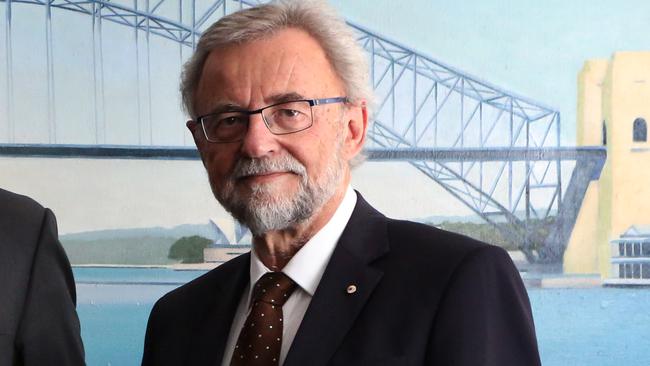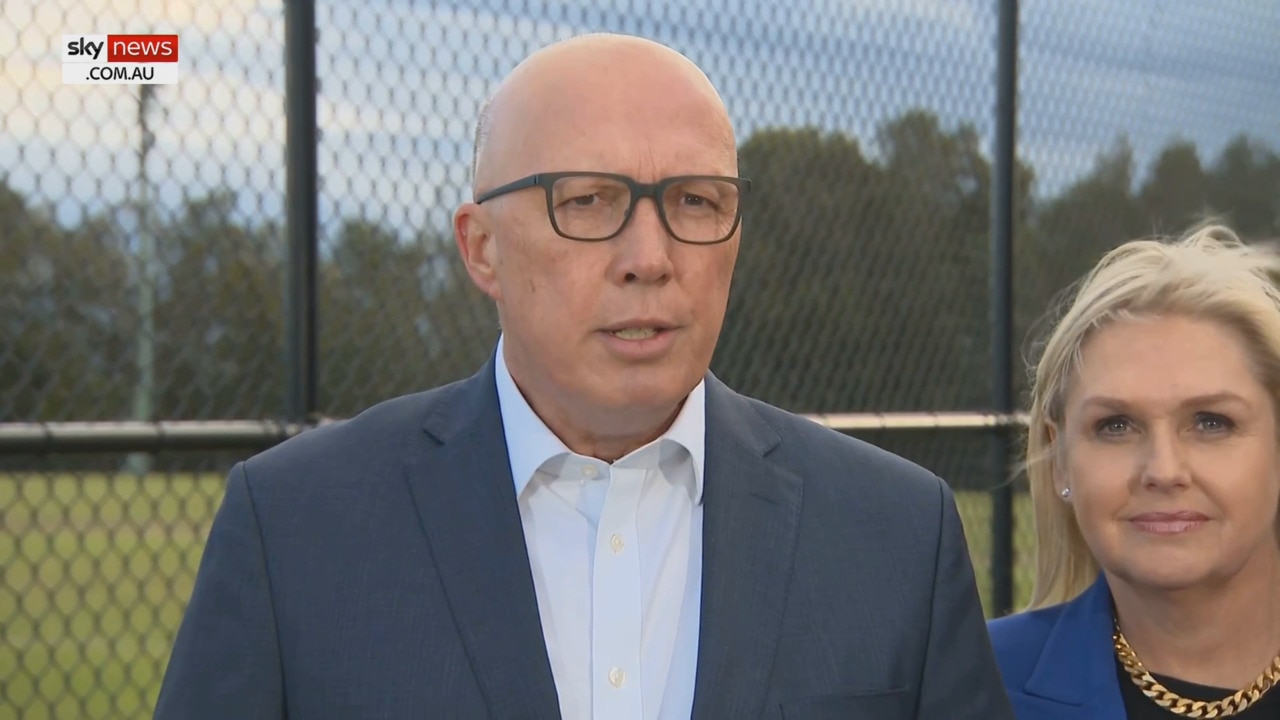Banks: falling living standards risk triggering ‘electoral backlash’
Inaugural productivity tsar challenges Labor’s view that a clean energy transformation will deliver a more productive economy.

A failure to pursue meaningful economic reform by both major parties is driving down living standards and could trigger an “electoral backlash”, according to a new warning from the nation’s inaugural Productivity Commission chair.
Delivering the annual Shann Memorial Lecture in Perth on Wednesday, Gary Banks critiqued plans to transform Australia into a renewable energy superpower and develop a sovereign manufacturing capability as risking a return to “old think” industry protectionism.
He argued the clean energy transformation was not delivering a more productive economy – arguing there was “not even the consolation that we are at least making a difference to the climate” – and rejected government assurances its workplace changes would enhance enterprise dynamics.
Professor Banks instead argued that an “anti-productivity bias” had infected policy development and a backlash was now possible.

“If there is to be reform of a kind that would make a difference to Australia’s productivity performance, it will require a change in the politics,” he said. “Governments follow or anticipate public opinion more than leading it.”
“How the public reacts to the stagnation or decline in living standards ... remains to be seen. But an electoral backlash cannot be ruled out – as we have just seen here in WA against the ill-conceived ‘heritage’ legislation,” he said.
Professor Banks said that governments were now “spending more over regulating better” and the pay-off from public investments was diminishing, pointing to the NDIS and Gonski education reforms.
He said the established relationship between productivity and non-inflationary wage growth had also been “brought into question” and took aim at Anthony Albanese’s claim the recent 15 per cent pay rise for age-care workers “would not be inflationary and would actually serve to increase productivity.”
“Given that the majority of workers to receive the wage rise are the existing ones, an overall increase in productivity is unlikely,” he said. “Indeed, with the introduction of a new visa category for migrants committing to a union-linked stint in aged care, it may decrease.”
Professor Banks said it was “hard to see” either major party embracing a real pro-productivity agenda. He warned that Coalition reforms had been stymied in the Senate while, under Labor, “devotion to big government, a suspicion of market forces and strong union influence are proving even more challenging.”
Echoing the Productivity Commission’s recent trade and assistance review, Professor Banks expressed concern over plans to turn Australia into a “renewable energy superpower”, arguing the goal had been conflated with the post-Covid push to develop a sovereign manufacturing capability.
“Though portrayed as a new, forward-looking approach to industry policy, there is much that is ‘old-think’ about it,” Professor Banks said. “For example, a ‘local content’ scheme, a form of non-tariff protection ... is being contemplated to promote battery manufacturing.”
The PC review found that total industry assistance increased 3.4 per cent to $13.8bn in 2021-22 and that a domestic processing capacity was “unlikely to create an appreciable cost advantage” for the local battery-making industry.

Ahead of ALP national conference, Professor Banks criticised a union push to change the way free trade agreements were negotiated and the suggestion Australia could impose new green tariffs on products from countries with weaker climate policies.
But his most serious criticism was reserved for policy failures in the areas of workplace relations and energy policy.
“In the case of energy, the determination to meet overly ambitious emission targets while suppressing our only base-load energy sources will inevitably mean further price increases and less reliability,” he said.
Unless there was a change of mindset, the government would need to resort to further “price controls and other regulatory interventions that can only exacerbate supply-side problems.”
Professor Banks said subsidies for intensive electricity users to ‘stand down’ at times of inadequate supply and subsidies to enable coal-fired power stations to remain on call resulted in an energy system requiring “far more capital to produce less reliable power — the antithesis of a pro-productivity approach.”
“Indeed, to the extent that production activity shifts offshore, global emissions are more likely to rise,” he said.
On industrial relations, Professor Banks noted the government’s agenda “aligns closely with the ACTU’s own wish list” and that Labor’s workplace changes meant industry deals could be forced on individual firms – undermining flexibility.
“To the extent that the current government’s policies continue to be influenced by union concerns, we could expect to see further measures to increase union coverage and ‘say’, and limit the ability of management to secure productivity-enhancing changes,” he said.
Since Labor won office, Professor Banks observed “successive waves of regulation have emerged with the ostensible purpose of ‘getting wages moving’ or achieving greater ‘job security.’”
“Looking beneath these aspirational headings, much of what is proposed appears more likely to impede than promote the enterprise dynamic on which, as Treasury has stressed, productivity growth and well-paid jobs depend.”








To join the conversation, please log in. Don't have an account? Register
Join the conversation, you are commenting as Logout